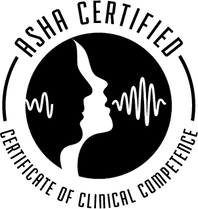|
There is so much confusion among parents and professionals about who is most qualified to give a definitive diagnosis of Childhood Apraxia of Speech (CAS). To understand who should be diagnosing this disorder we have to understand what CAS actually is...
"CAS is a neurological childhood speech sound disorder in which the precision and consistency of movements underlying speech are impaired in the absence of neuromuscular deficits (e.g., abnormal reflexes, abnormal tone)..." Ad Hoc Committee on Apraxia of Speech in Children, American Speech-Language-Hearing Association, 2007 There are 2 important aspects of this definition... one usually leads to confusion about who should diagnose, and the other actually helps to clarify the confusion. 1. "neurological"... That word understandably leads many people think that a medical professional (specifically a neurologist or developmental pediatrician) would be most qualified to give a diagnosis. But, as Cari Ebert, an SLP and nationally recognized speaker on the topic of CAS has explained, it simply means that the issues with the child's speech difficulties begin in the brain, not the mouth. This word also leads people to believe there are usually medical tests (e.g., MRI) that can reveal the cause of CAS. Though CAS can occur with other neurologic impairments (childhood stroke, infection, trauma, etc.) that do yield positive findings on imaging studies (i.e., MRI), this is usually not the case as CAS is very often idiopathic (unknown cause). "Imaging and other studies have not been able to find evidence of brain damage or differences in the brain structure of children with Apraxia of Speech." Apraxia of Speech. National Institute on Deafness and Other Communication Disorders (NIDCD). Accessed 1/4/2016. 2. 'speech sound disorder"... this phrase provides the clarification we need! CAS is at it's core a SPEECH disorder. And who is the most qualified professional to diagnose speech disorders?... speech language pathologists (SLPs)! In fact, the word "pathologist" by definition refers to the SLPs ability to actually diagnose speech and/or language disorders. Although consulting neurologists, developmental pediatricians, psychologists, etc. can be helpful and sometimes necessary, these professionals do not have the education, training or expertise to differentially diagnose CAS from other speech/language disorders or delays. Does this mean that all SLPs are qualified to diagnose CAS? NO and here's why... CAS is a very rare condition. It occurs in 1-2 children per 1,000 (Shriberg et al., 1997) and is found in only between 3-5% of children with speech disorders (Delaney & Kent, 2004). That means that most SLPs won't see very many children with CAS across their entire careers so we can't expect all SLPs to have expertise in diagnosing a disorder they rarely come across. So, is it really all that crucial to find an SLP with expertise in CAS to make sure you have an accurate diagnosis? Yes! A particular diagnosis informs the type of therapy a child receives. It is imperative that the speech therapy approach is matched to the nature of the child’s speech disorder and misdiagnosis can prevent children from receiving the help that they really need to progress. I often hear from parents living in countries outside the U.S. that MDs are the ones that provide the "official" diagnosis or that insurance companies require that the diagnosis come from an MD. But, please remember if an MD gives your child a CAS diagnosis without the input of an SLP who has conducted a thorough motor speech assessment, you may not have an accurate diagnosis. And a thorough motor speech assessment can only be conducted with children who are verbal. So, although we can "suspect" that a non-verbal child may have CAS and treat accordingly, a definitive diagnosis should never be made in this instance. So how do you know if your child has an accurate diagnosis? Here are some questions to ask the professional who diagnosed your child....
Lastly, here are 2 ways to make sure you're getting the best information and services for your child:
(For more information about CAS, click here.)
4 Comments
Nothing strikes more fear in the heart of an SLP than those two little words... lateral lisp. To most parents it seems like an easy fix. It's just a sound or two that their child has trouble with... a few speech therapy sessions and boom, it should be fixed, right? Nope! Not that simple. Now if you're NOT a speech language pathologist, let me first define some terms. Primarily speaking, there are frontal lisps and there are lateral lisps. A frontal lisp occurs when the tongue either protrudes between, or touches, the front teeth and the sound produced is more like a /th/ sound than a /s/ or /z/. Many children go through a perfectly normal phase of producing a frontal lisp. Most will outgrow this and will be able to produce a correct /s/ sound by around kindergarten. Children who continue with a lisp past this age typically require speech therapy to correct it. A lateral lisp occurs when the air escapes over the sides of the tongue and into the cheeks.... this can occur on several sounds, /s/, /z/, /sh/, /ch/ /zh/, and /dj/. Parents of children with lateral lisps often describe their child's speech as sounding "mushy" or "slushy". These types of lisps are NOT developmental. Children with lateral lisps do not typically outgrow it and will require speech therapy to correct. Now speaking to my SLP colleagues.... if you have a child with a lateral lisp I'm assuming you've done a thorough oral motor/mechanism exam to determine if the child has any structural or functional issues. If not... do it! There are often myofunctional issues with these kids and those should be addressed (that's a post for another day). Let's talk about speech therapy for a lateral lisp.... The first thing we have to do is elicit the correct production of the target sound, whether /s/, /sh/, or /ch/ (I always start by targeting voiceless phonemes). Essentially, these kids have to learn to anchor the lateral borders of their tongue to the interior margins of their molars to prevent air from escaping laterally. There are plenty of techniques out there to help cue correct tongue placement, such as the butterfly technique, using straws, and fantastic resources from Pam Marshalla. But, I prefer what I call a phonetic approximation approach. I start by eliciting /s/ from the /t/ sound. It looks something like this...
BUT THAT'S NOT THE SECRET! If your little clients are anything like mine they quickly figure out that I'm trying to get them to say /s/! Ugh... which means they automatically go right back to that lateral airflow when they move to the word level. Oh, the frustration! So, here's my "secret" (drum roll please)... Tell the child you're NOT actually going to work on the /s/ sound! That's right.... you're done with /s/ and aren't even going to talk about it anymore! You are going to create a completely new sound... the "flat tire" sound! As we hold out that /t/ sound in step 2, it actually sounds like a tire losing air. It's the idea behind my new deck of speech sound cues from Bjorem Speech Publications created specifically for children who lateralize. The reason these new picture cues work so well is because you have a visual representation of their "new sound". Often when kids start adding a newly learned non-lateralized sound into different positions of words they begin to realize we're really working on /s/ and go right back to lateralizing again. But these cards help me remind them... NO /s/ sounds! We're only using the "flat tire" sound now. Then we start "removing" the /s/ sound from words and replacing it with that "flat tire" sound. This mental shift has been the key to my clients creating a new motor plan for correct production of /s/. I'm telling you, it's literally that simple. Need more information about this technique? There is much more detailed information included on the insert inside the Bjorem Speech Publications deck for Lateralization. Plus this deck also includes "new sound" cues and target words for each sound that kids lateralize.... including /z/, /sh/, /ch/, and /dj/! And don't forget to follow me on Instagram to see LOTS of real life therapy videos showing how I use this technique! ***A quick word about carryover... Don't forget to use those principles of motor learning to promote generalization of these skills. Working through a hierarchy of constant to variable positions in words/phrases, blocked to randomized practice, and simple to complex tasks will ensure your kids with articulation deficits won't be in years of speech therapy without significant progress.***
Toys and games... they're how we speech language pathologists keep our kids motivated and engaged during therapy, which helps us get the maximum amount of target productions and keep those kids engaged. My practice specializes in speech sound disorders... which means that my clients can range from 10-year-olds who are working on single sound articulation errors to 3-year-olds with Childhood Apraxia of Speech. Here are some our favorite toys and games that have proven to hold kids' interest, especially for those younger ones who are minimally verbal. Barrel of Monkeys... For just a few dollars this little compact game is always a hit. It's quick, easily adaptable, and especially great for kids working on getting that lip closure for the /m/ sound. We dump those little guys out on the floor or table and practice our target syllable shapes as we pick them up.... "more!"... "monkey, monkey. monkey!"... "my turn!". But, this is also a great little game to reinforce counting ("let's count all the monkeys"), using adjectives ("three monkeys", "orange monkeys", "little monkeys", "silly monkeys"), and answering "wh-" questions ("what do you have?", "how many monkeys?"). Pop Up Pirate... Another quick game that my kids just love... their little faces are priceless as the suspense builds each time they poke those swords into the barrel until that pirate pops right out. I love to use Pop Up Pirate for working on /p/ and /b/ sounds increasing in complexity... "up!", "boo!", "pop!", "pop up!", "put it in"... a great way to get the maximum amount of productions in a small amount of time. And of course, a great way to continue to enforce turn taking, descriptive language ("I have a red sword", " I have 4 green swords"), and following directions ("put a blue sword in"). Honey Bee Tree... I bet you can guess what target sounds and syllable shapes this game is great for!... my favorites are /b/, /m/, and pairing those bilabial sounds with varying vowels, etc. ("bee", "my bee", "go bee!"). And of course, those opportunities for language are abundant... we count the leaves as we put them in the tree with each production of our target words and reinforce basic concepts ("put the leaf in", "leaves go on top", "put the bees inside", "pull the leaf out", "the bee fell down"). Mesh Squishy Ball... I saved the best for last. This little $3 piece of gold has been a game changer for those kids who are just not interested in participating in speech therapy. We've all worked with those little ones who just want to bury their heads in mommy's lap and have no interest in interacting with us. Until I pull this little beauty out! The shyest of kids can't resist coming over and squeezing those "bubbles" back into the ball. We also get lots of opportunities for practicing target consonants ("pop", "bubble", "ball", "go in") and requesting ("more!", "again?", "do again!").
There you have it... just some of my favorite games and toys for keeping those minimally verbal kids engaged and on task so we can get the most out of speech therapy. What are some of your favorites? |
|

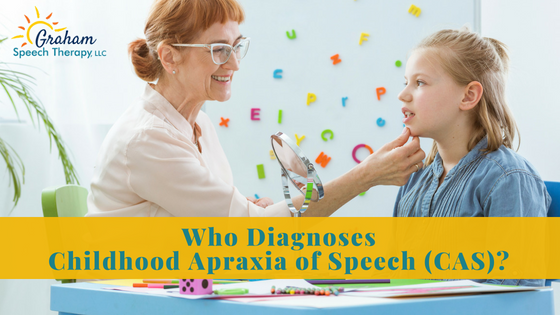
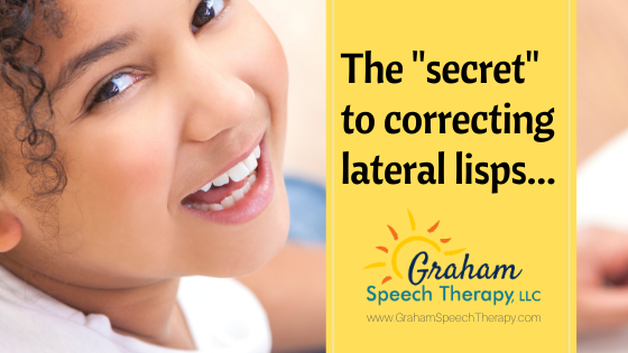
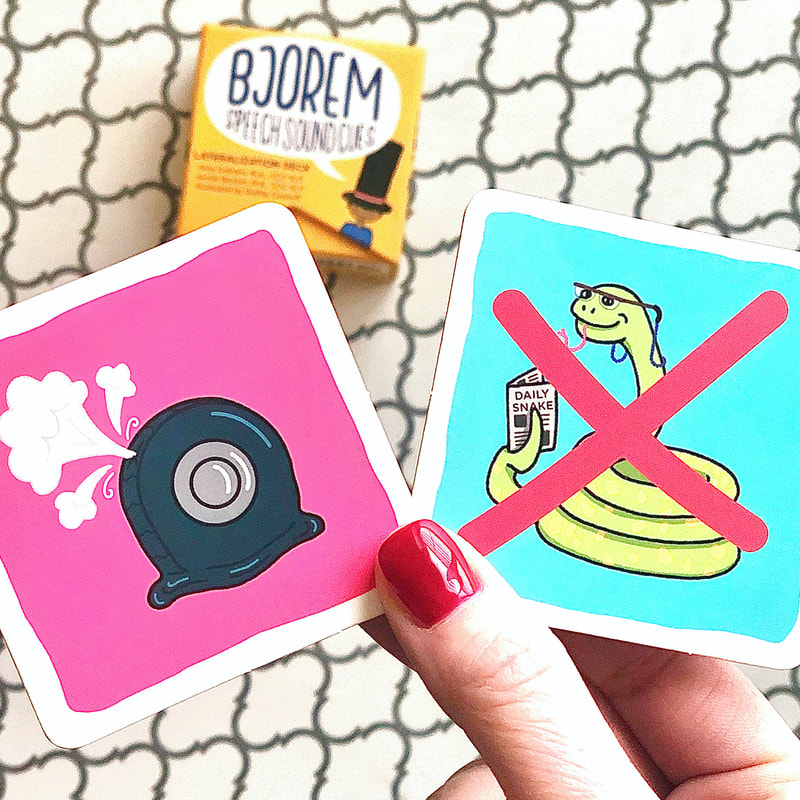
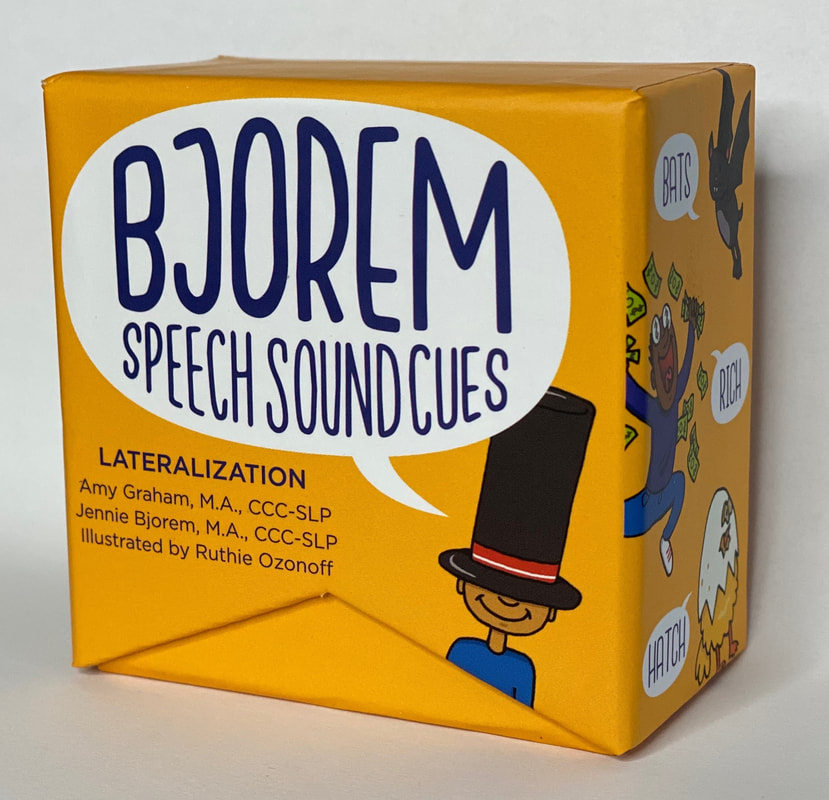
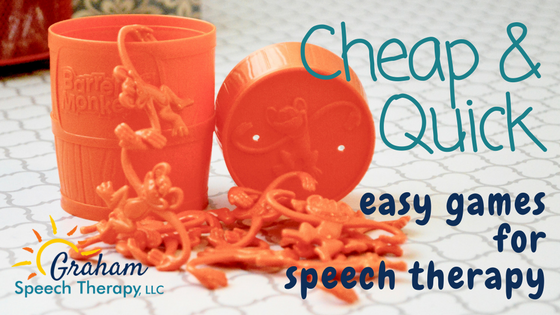
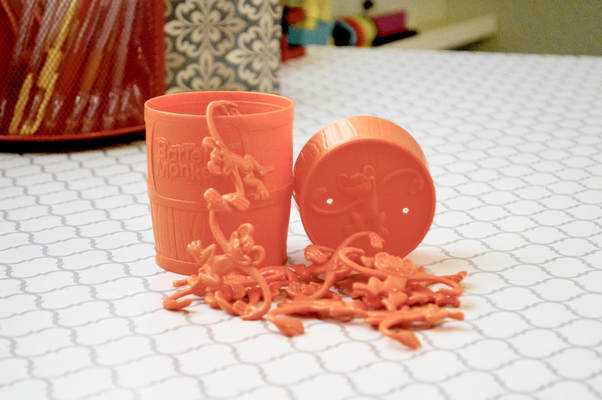
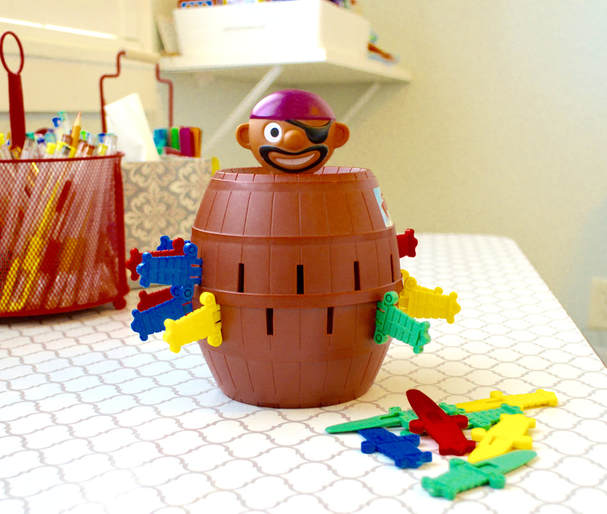
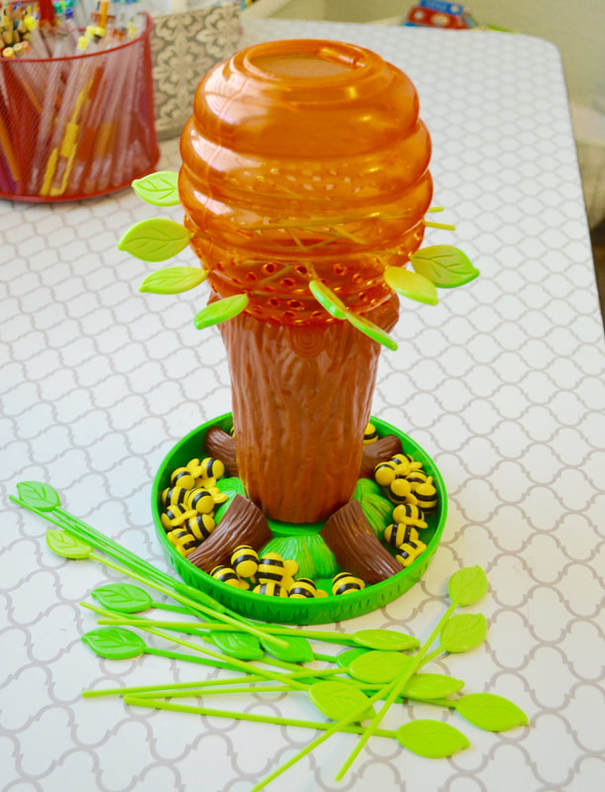
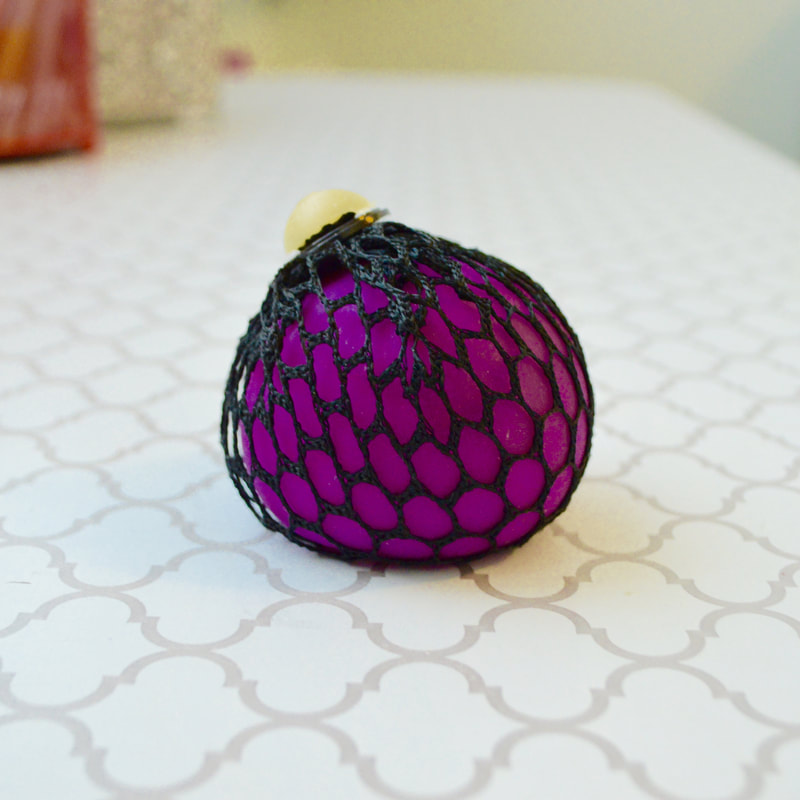
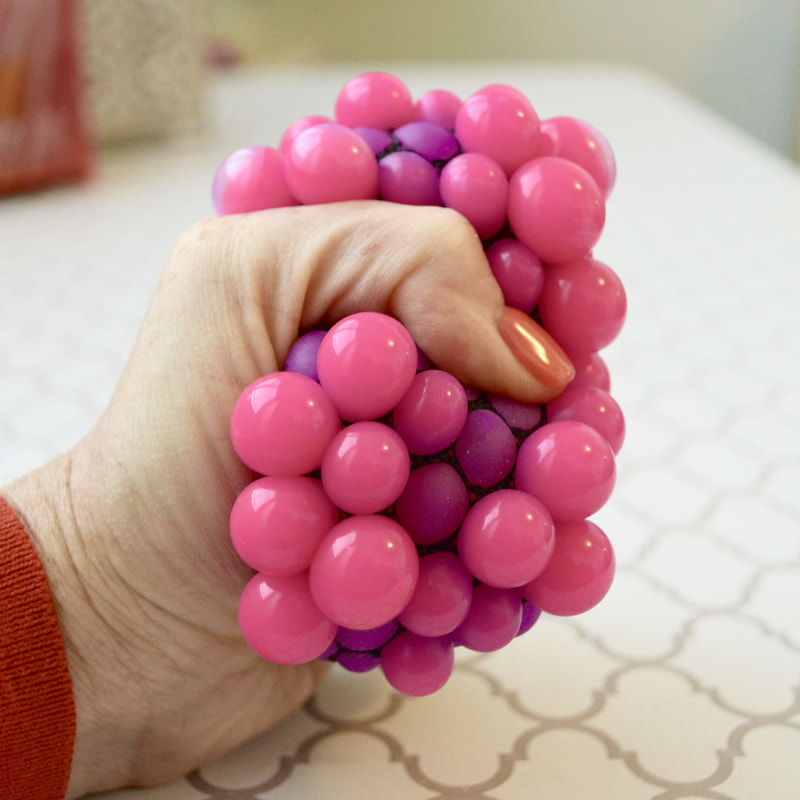
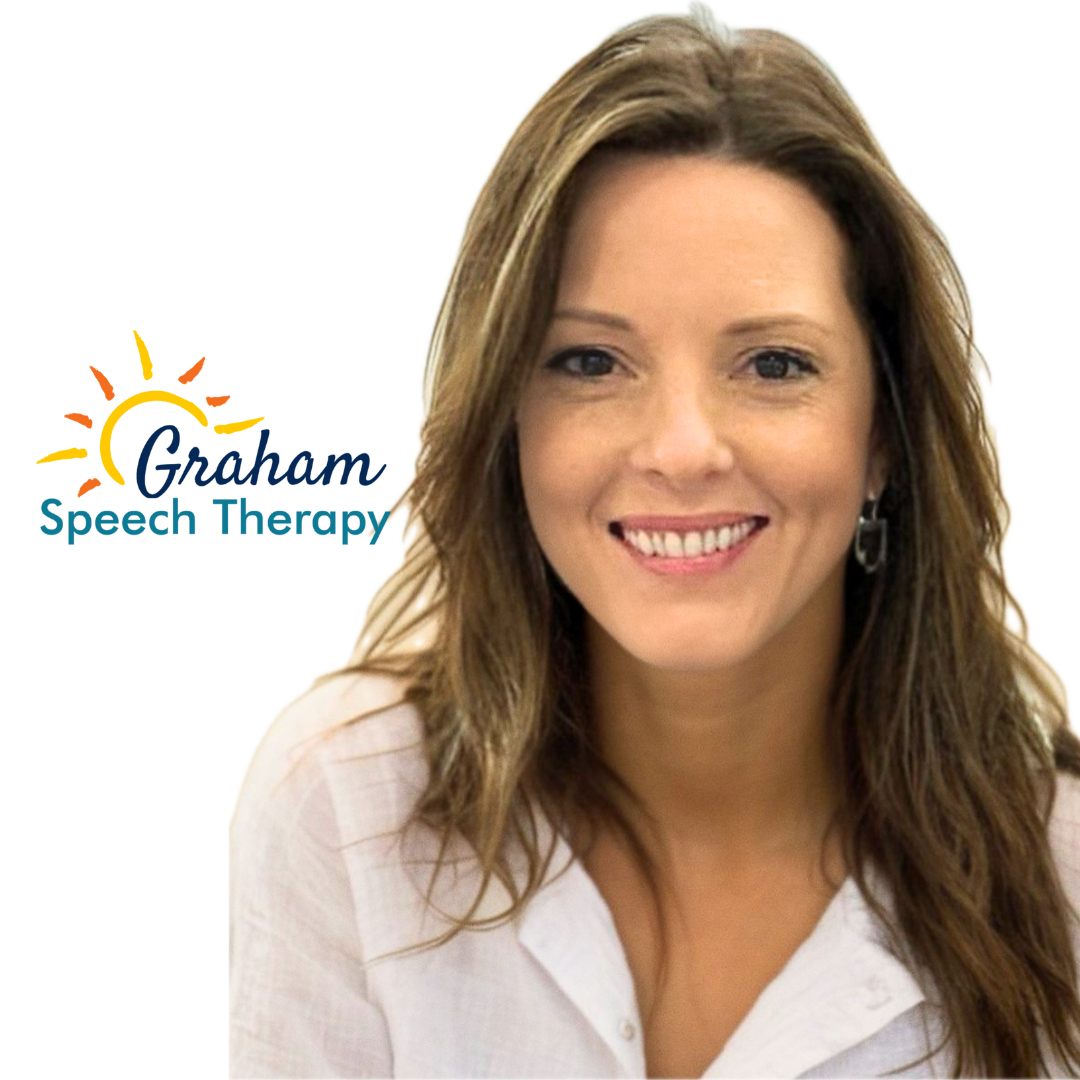
 RSS Feed
RSS Feed
